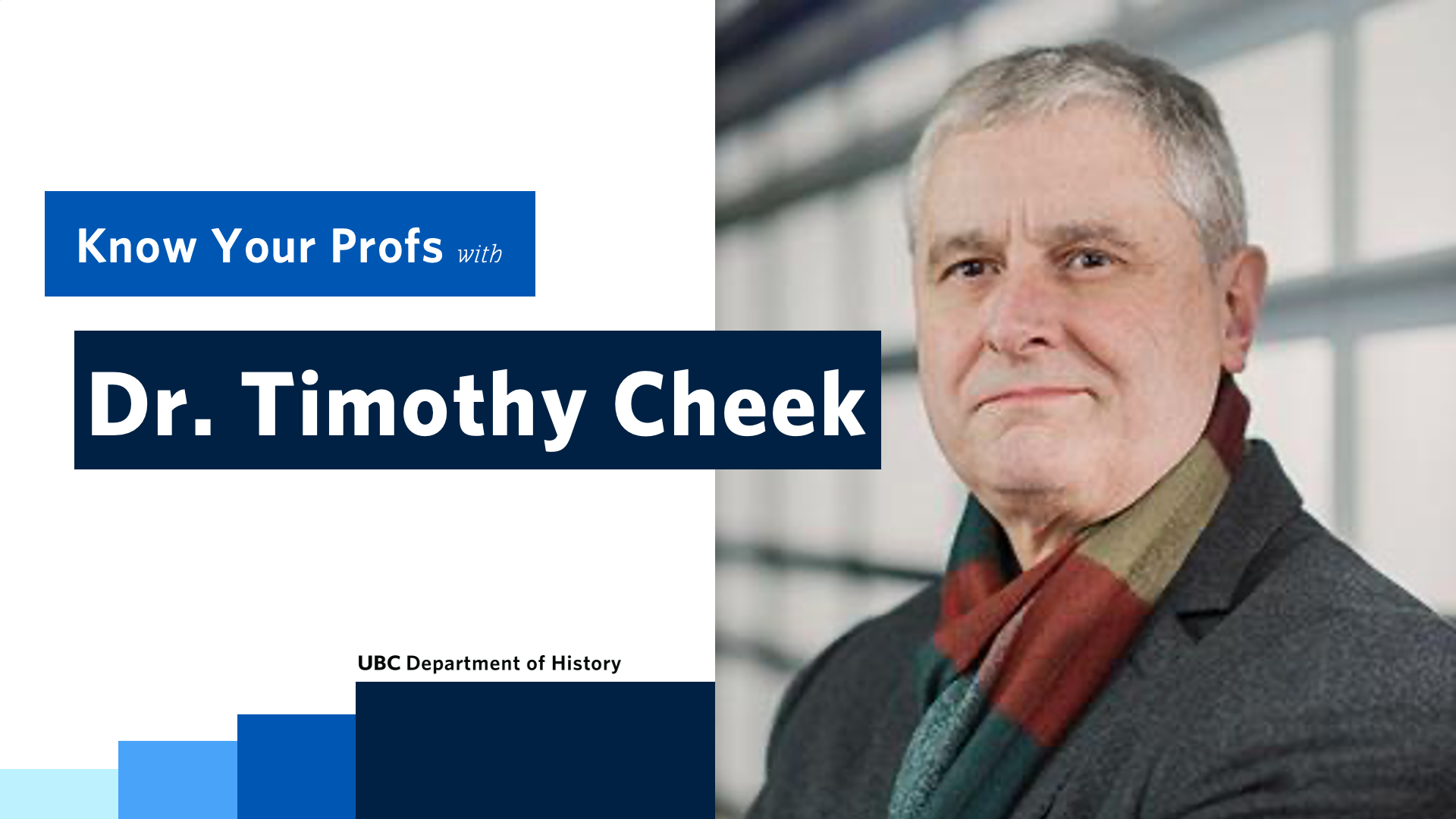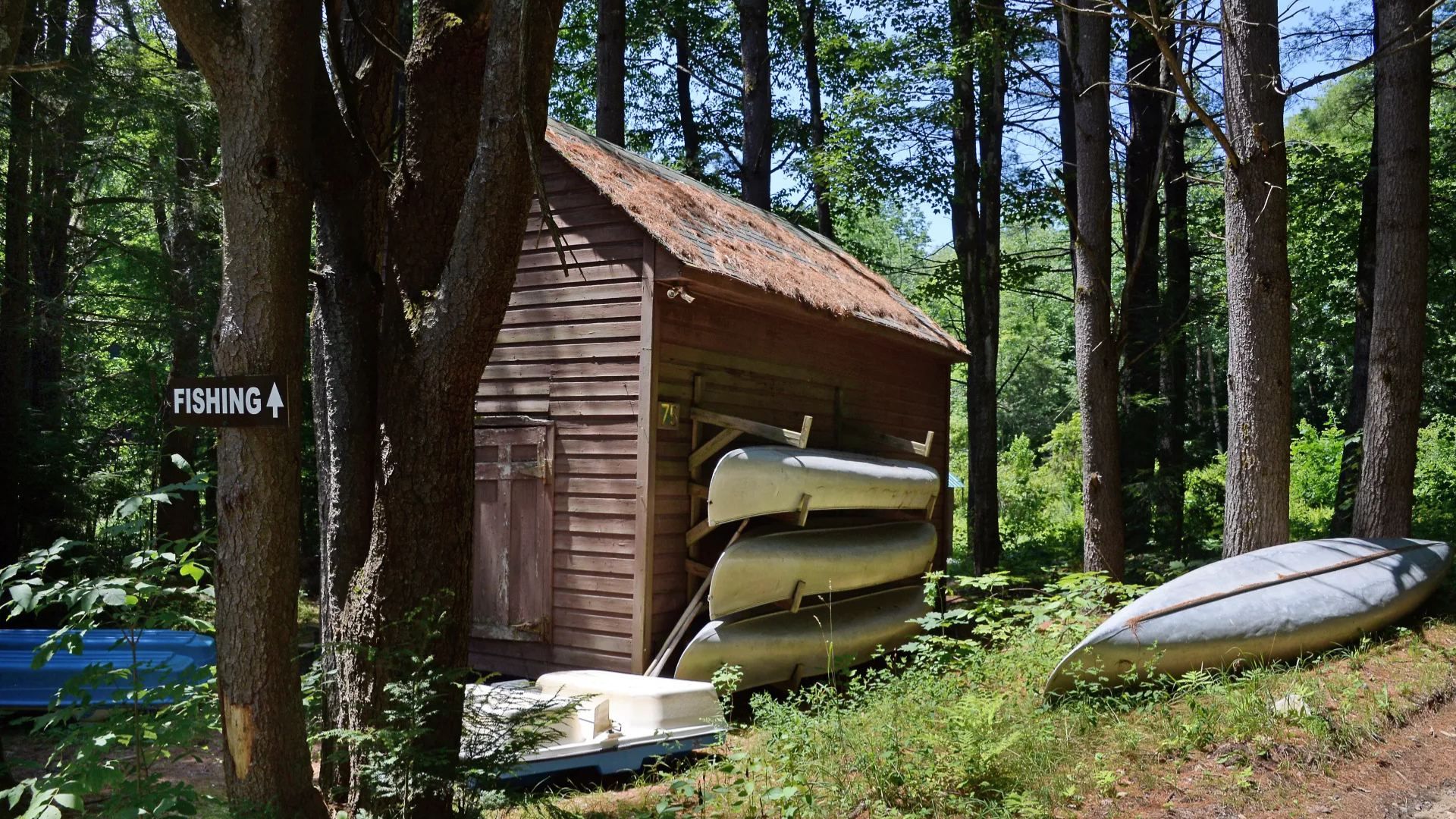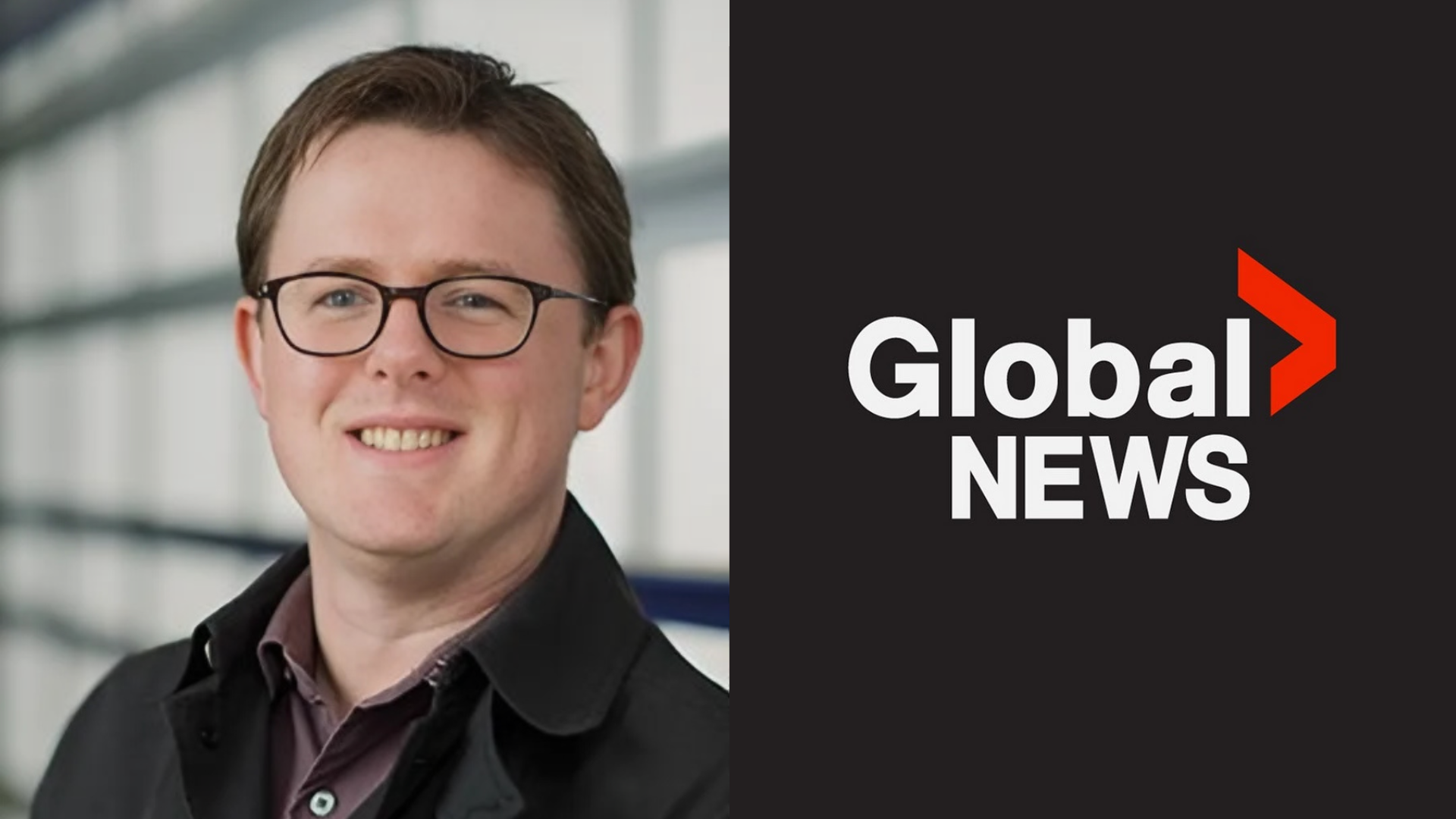

The Know Your Profs series is meant to help students get to know their professors in their own words. This series is for you if you’re thinking of taking a course taught by a professor you don’t know very well, if you’re an Honours student or grad student looking for a thesis supervisor, or if you simply want to know more about your favourite professors in the Department of History.
In this instalment of Know Your Profs, Dr. Timothy Cheek shares with us what triangulation has to do with working with historical documents and artifacts, why context is important to any work in the discipline of history, and why you should take a chance on at least one discipline that is new to you in first and second year.
What is your area of specialization?
I specialize in modern Chinese History, intellectual history, historiography, and translation.
What does it mean to you to study history?
To study history is to find things out and to challenge my assumptions. It takes interest, detective work, surprise and a deeper understanding of how humans choose to comport themselves. For me, History has two fundamental tasks: context and source criticism. Historians have to look at social, individual, and cosmic data in context, because data makes no sense out of context. Historians are skeptical readers – there is no “objective” document; all our sources are partial, so we have to “triangulate” between different but related sources to suss out what’s useful in a particular document, image, cup or bone.
Which courses do you teach?
Lately I’ve been teaching HIST 104B, Communism & After. It is part of the Department’s offerings on world history. Since I work on the Chinese Communist Party in my research, teaching more broadly about the history of Communism in the 20th century strengthens the context of my research.
What can students expect from your classes?
Students can expect lots of reading and re-reading, discussion, and writing, that come with shorter lectures and funny stories. I make opportunities for students to work together, but they can also follow their own interests within reasonable focus of the course content. My students have to be interested in learning either the topic or the method.
What do you like about teaching UBC students?
I learn new things from my students in every class. The conversations, given this cultural and personal diversity, are really rich.
What advice would you give your first-year and graduating undergrad self?
For my first-year self: take a chance on at least one course. First and second year are for exploration – so explore. It’s better to try and learn that a particular discipline is not for you than to limit yourself to what you were good at in high school.
For my graduating self: take a year off school and work in the work-a-day world. It focuses the mind wonderfully.
If you weren’t a professor, what would you do with your life?
Public radio. I tried when I was in university, but discovered the hours were longer and the pay much worse than as an academic.


